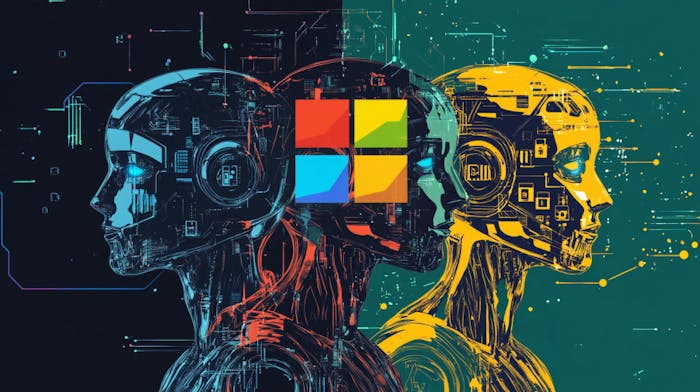Microsoft is weaving AI into every part of its business
ecosystem
The company has linked up its agent-building tools to a catalogue of more than 1,800 large language models.

Microsoft has been busy building the biggest AI agent ecosystem out there. From Copilot Studio to a new Azure AI Foundry, the firm wants to weave AI into every part of its business software.
It announced a host of updates at its Ignite conference this week, many of which tie together existing parts of its software portfolio.
Although it's largely focused on enterprise business — in fact, 85% of the Fortune 500 are using Microsoft's AI services in some form — but plenty of these new features and integrations will still be useful for indie hackers.
Here's everything you need to know.
Copilot Studio: Integration with Azure AI and CRM systems
Launched last November, Copilot Studio allows users to make AI agents using a graphical interface or natural language. These assistant-like tools can perform all manner of tasks automatically.
Over the last year, more than 100,000 organizations have used the studio to make or adapt agents, largely to automate business processes and boost productivity.
This week, Microsoft announced it was making Copilot Studio a whole lot more powerful.
Before now, users could only use OpenAI models within the studio.
Users will soon be able to access any large language model from Azure AI: a library of around 1,800 LLMs designed for everything from generalist to highly tailored use.
At the same time, it's upgrading Copilot Studio to handle the voice generation and image capabilities many major LLMs now offer. That means customers will be able to speak with AI agents, and upload images for analysis.

The firm is also expanding the knowledge base AI agents can draw from.
Although it's only in preview right now, users can use plug their agents into third-party sources, giving them real-time access to information from customer relations management systems like Salesforce and Zendesk.
Develop agents with Power Apps and an SDK
For users that want a greater level of control over their agents, Microsoft has released two more agent building options in preview form.
Users familiar with the low-code Power Apps software can now use it to make their own agents for the first time.
A Microsoft 365 Agents software development kit (SDK) will allow developers to build their agents for integration into Copilot Studio and the rest of the Microsoft ecosystem.
Access everything with the Azure AI Foundry

A new "Azure AI Foundry" brings all of these agent updates and integrations under a single platform, revamping and replacing the old Azure AI Studio.
Developers can work with Microsoft's various AI tools in Github, VSCode and Copilot Studio via an SDK.
Alternatively, users can access the tools via a visual portal and monitor their usage with a new management centre.
I love AI. I don't love Microsoft. This conflict sucks because I'm an aggressive early adopter and love trying out new tech.
There's just something about Microsoft's overall strategy of creating inferior copies of great apps and rolling them into the Microsoft 365 bundle — Teams for Slack, Loop for Notion, etc etc — that makes me generally distrustful of almost anything they do.
In this case I might try out Azure AI since it stands alone and isn't part of the 365 subscription (like Copilot Studio), but it kind of gives me the ick regardless.
Yes, Microsoft is integrating AI into every aspect of its business ecosystem. It aims to transform the user experience across productivity tools like Copilot in 365, Power BI, Power Apps, and more. This is not only revolutionizing the tech industry but all industries.